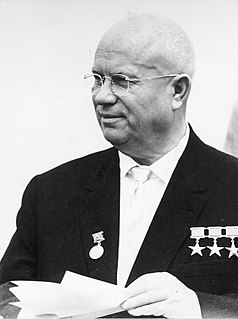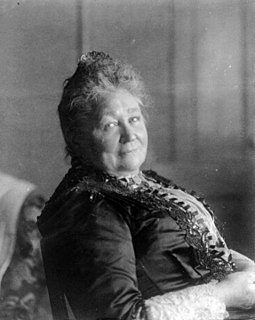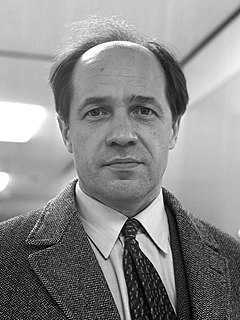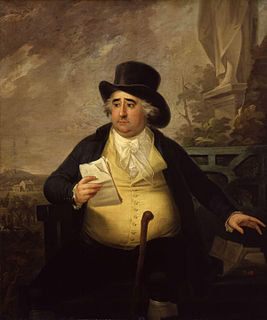Top 504 Revolutions Quotes & Sayings
Explore popular Revolutions quotes.
Last updated on December 3, 2024.
Nothing exceptional [would happen to the world under a Hillary Clinton's presidency] - things would stay the same: sponsorship of "Color" or "Umbrella" or whatever "revolutions", some more coups, "regime changes", direct invasions, bombing, propaganda warfare against China, Russia, Iran, South Africa and what is left of the Latin American revolutions. There would be plenty of torture in "secret centers", but it would not be as advertised and glorified as it would be if [Donald] Trump were elected.
We should all be aware of the fact that when revolutionary - not evolutionary - changes come, things can get even worse. The intelligentsia should be aware of this. And it is the intelligentsia specifically that should keep this in mind and prevent society from radical steps and revolutions of all kinds. We've had enough of it. We've seen so many revolutions and wars. We need decades of calm and harmonious development.
In the political, the social, the economic, even the cultural sphere, the revolutions of our time have been revolutions "against" rather than revolutions "for"... On the whole throughout this period the man--or party--that stood for doing the positive has usually cut a pathetic figure; well meaning but ineffectual, civilized but unrealistic, he was suspect alike to [by both] the ultras of destruction and the ultras of preservation and restoration.
I'm not a big believer in revolutions. What people call revolutions in technology were more of a shift in perception - from big machines to PC's (the technology just evolved, fairly slowly at that), and from PC's to the internet. The next "revolution" is going to be the same thing - not about the technology itself being revolutionary, but a shift in how you look at it and how you use it.
It appears to general observation, that revolutions create genius and talents; but those events do no more than bring them forward. There is existing in man, a mass of sense lying in a dormant state, and which, unless something excites it to action, will descend with him, in that condition, to the grave. As it is to the advantage of society that the whole of its faculties should be employed, the construction of government ought to be such as to bring forward, by a quiet and regular operation, all that extent of capacity which never fails to appear in revolutions.
The old terms must be invented with new meaning and given new explanations. Liberty, equality, and fraternity are no longer what they were in the days of the late-lamented guillotine. This is what the politicians will not understand; and that is why I hate them. They want only their own special revolutions- external revolutions, political revolutions, etc. But that is only dabbling. What is really needed is a revolution of the human spirit.
The two revolutions, I mean the annual revolutions of the declination and of the centre of the Earth, are not completely equal; that is the return of the declination to its original value is slightly ahead of the period of the centre. Hence it necessarily follows that the equinoxes and solstices seem to anticipate their timing, not because the sphere of the fixed stars moves to the east, but rather the equatorial circle moves to the west, being at an angle to the plane of the ecliptic in proportion to the declination of the axis of the terrestrial globe.
The most successful revolutions aren't those that are celebrated with parades and banners, drums and trumpets, cannons and fireworks. The really successful revolutions are those that occur quietly, unnoticed, uncommemorated. We don't celebrate the day the United States Constitution was destroyed; it didn't happen on a specific date, and most Americans still don't realize it happened at all. We don't say the Constitution has ceased to exist; we merely say that it's a 'living document.' But it amounts to the same thing.
There are things that are about the entire genre, so it's weird when you look on Wikipedia and people say, "The scene where Angel grabs his fist is from Superman II," and you're thinking, "Ummm, no it's not." Or, "There's a shot from Matrix Revolutions." I'm thinking, "I've only seen Matrix Revolutions once, and will never watch it ever again."
The solutions put forth by imperialism are the quintessence of simplicity...When they speak of the problems of population and birth, they are in no way moved by concepts related to the interests of the family or of society...Just when science and technology are making incredible advances in all fields, they resort to technology to suppress revolutions and ask the help of science to prevent population growth. In short, the peoples are not to make revolutions, and women are not to give birth. This sums up the philosophy of imperialism.
The link between literacy and revolutions is a well-known historical phenomenon. The three great revolutions of modern European history -- the English, the French and the Russian -- all took place in societies where the rate of literacy was approaching 50 per cent. Literacy had a profound effect on the peasant mind and community. It promotes abstract thought and enables the peasant to master new skills and technologies, Which in turn helps him to accept the concept of progress that fuels change in the modern world.
No single man makes history. History cannot be seen, just as one cannot see grass growing. Wars and revolutions, kings and Robespierres, are history's organic agents, its yeast. But revolutions are made by fanatical men of action with one-track mind, geniuses in their ability to confine themselves to a limited field. They overturn the old order in a few hours or days, the whole upheaval takes a few weeks or at most years, but the fanatical spirit that inspired the upheavals is worshiped for decades thereafter, for centuries.
History reminds us that revolutions are not events, so much that they’re processes – that for tens of thousands of years, people have been making decisions that irrevocably shaped the world that we live in today; just as today, we are making subtle, irrevocable decisions that people of the future will remember as revolutions.
This example illustrates the differences in the effects which may be produced by research in pure or applied science. A research on the lines of applied science would doubtless have led to improvement and development of the older methods - the research in pure science has given us an entirely new and much more powerful method. In fact, research in applied science leads to reforms, research in pure science leads to revolutions, and revolutions, whether political or industrial, are exceedingly profitable things if you are on the winning side.
What is this world? A complex whole, subject to endless revolutions. All these revolutions show a continual tendency to destruction; a swift succession of beings who follow one another, press forward, and vanish; a fleeting symmetry; the order of a moment. I reproached you just now with estimating the perfection of things by your own capacity; and I might accuse you here of measuring its duration by the length of your own days.
As in political revolutions, so in paradigm choice--there is no standard higher than the assent of the relevant community. To discover how scientific revolutions are effected, we shall therefore have to examine not only the impact of nature and of logic, but also the techniques of persuasive argumentation effective within the quite special groups that constitute the community of scientists.
Before, revolutions used to have ideological names. They could be communist, they could be liberal, they could be fascist or Islamic. Now, the revolutions are called under the medium which is most used. You have Facebook revolutions, Twitter revolutions. The content doesn't matter anymore - the problem is the media.
























































